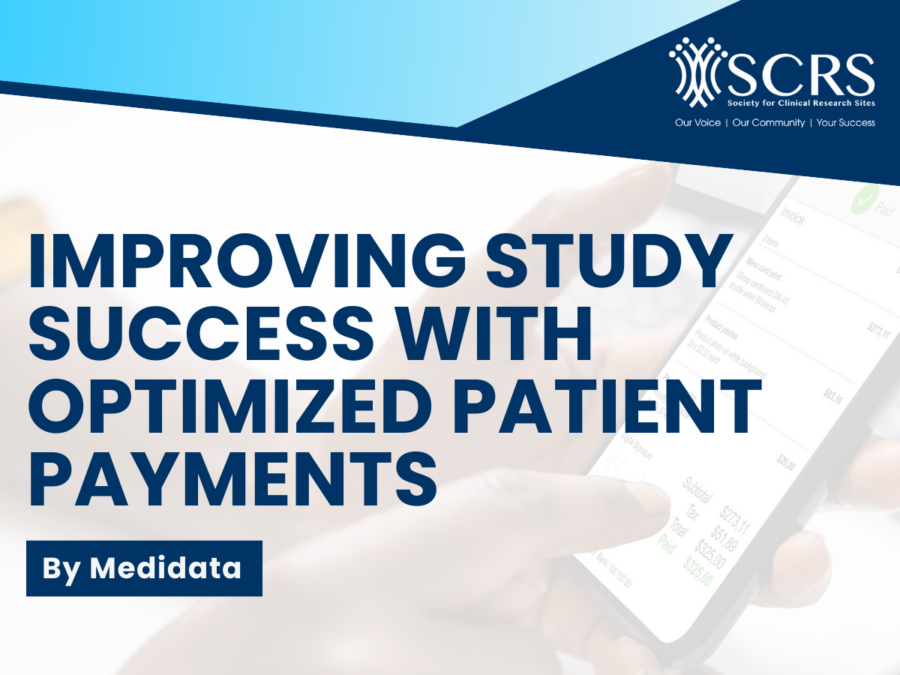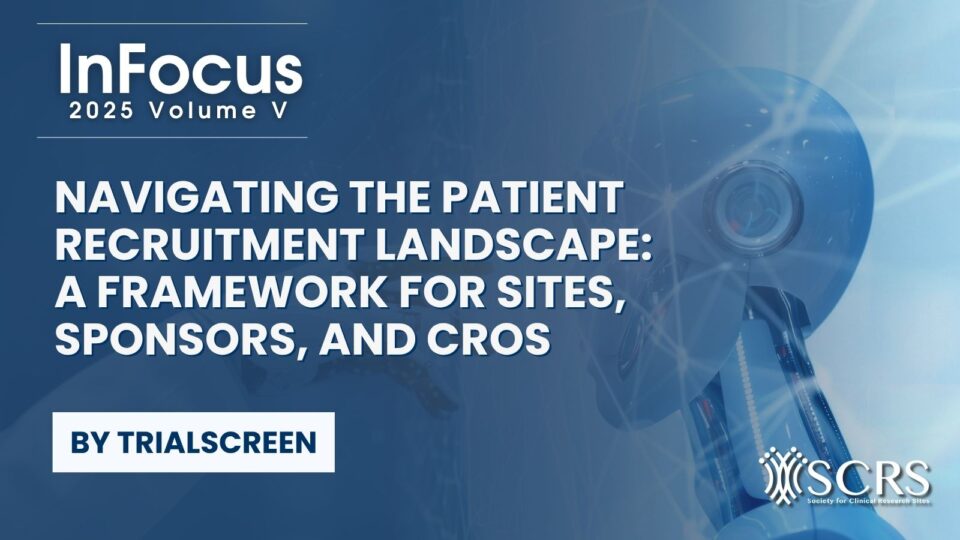Improving Study Success With Optimized Patient Payments

In clinical trials, patient compensation through reimbursements and stipends is vital for the patient experience. Reimbursements cover travel and meal expenses, while stipends are fixed amounts paid for the time and effort involved in participation. Delayed payments can prevent patients from continuing in studies, impacting their access to critical treatments and the overall study outcomes.
Additionally, the non-medical financial costs, such as loss of income and financial instability – often referred to as financial toxicity, can severely affect patients, particularly those with cancer.
Research sites act as the interface between patients and sponsors, but managing reimbursements and stipends can create significant time and resource burdens. The extent of this burden depends on the level of support from financial systems provided by sponsors; manual processes are slow and prone to errors.
Technology solutions from sponsors could help, but not all systems effectively reduce the burden on sites. Sponsors must recognize the challenges involved, as understanding these is essential for implementing the best solutions. Typically, the reimbursement and stipend processes involve various internal stakeholders, including those in finance, operations, and legal. Ultimately, aligning the differing expectations and needs of patients, sites, and sponsors is crucial for creating a best-in-class experience for everyone.
The Patient Experience
Each patient is unique; their circumstances, medical needs, and preferences shape their clinical trial experience. The challenge is ensuring that each patient has an exceptional experience. Clinical trial stakeholders should proactively seek feedback from patient advocates. Engaging with diverse teams of patient experts representing various therapeutic areas and personal and professional experiences can drive patient-centric and empathetic technology design.
Feedback has uncovered common themes, including:
● Need for intuitive design
● Accessible help and support
● Data privacy and security
Being listened to, feeling cared for, and comforted throughout the study are foundational to the patient experience.
Patient Compensation
In U.S. studies, stipends are more common than reimbursements, and patients should be informed that these payments are treated as income by the IRS. Stipends can also disqualify patients from other government benefits like Medicaid and the Supplemental Nutrition Assistance Program (SNAP). Payments above the $600 threshold require patients to pay taxes and receive a 1099-MISC form from
the payer.
The proposed Harley Jacobsen Clinical Trial Participant Income Exemption Act seeks to remove this tax liability, which affects an estimated 110 million Americans enrolled in social welfare programs, enabling them to participate in clinical trials without risking their benefits.
Impact of Manual Processes or Inadequate Systems
Late payments are not uncommon in clinical trials, with reimbursements or payments sometimes taking months to process if suboptimal processes and systems are used. From a system perspective, patients are interested in solutions that offer:
● Choice in disbursement options
● On-time payments
● Visibility into the payment process
● No hidden bank or card fees
● Simple patient registration
● Local language and timezone support
The Site Experience
Research sites play a crucial role in clinical trials, managing various responsibilities such as study setups, patient recruitment, and compliance. Their connection with patients significantly impacts the overall experience, as they provide support, build trust, and keep patients informed.
Sponsors supply sites with technologies intended to streamline processes, but using multiple disparate systems can create burdens, including:
● Multiple user interfaces
● Increased logins
● Data entry duplication
Sites also seek support for patient reimbursement and stipend processes, including expense verification, receipt management, and addressing patient inquiries about unpaid reimbursements. These challenges can lead to a domino effect on operations, often triggered by a single unpaid receipt.
While sites appreciate supportive technology, they need pragmatic solutions and increased visibility in payment processes. The financial challenges faced by sites are well-documented, highlighting the importance of addressing reimbursement and stipend issues, as they directly affect all stakeholders in clinical trials.
The Sponsor Experience
Sponsors need a holistic approach when determining the best strategies and infrastructure for successful clinical trials. Insights from the ISR survey reveal sponsors’ expectations regarding patient reimbursements, budgeting, and financial management services. Sponsors must support patients and sites without overwhelming them with technology, whilst not providing an underwhelming,
demotivating experience.
Effective systems implementation relies on aligning strategic, philosophical (patient and site-centric), technical, operational, and functional requirements. According to the ISR survey, 86% of respondents preferred an end-to-end clinical trial financial management solution that includes:
● Budget planning
● Forecasting
● Contract negotiation
● Payment tools
● Expense tracking
A unified platform designed with these features offers significant advantages over multiple disparate systems.
Patient Reimbursements and Payments – More than Expense Management
Understanding patient reimbursements and stipend systems is not only about software, transactions, workflows, and data management systems. It is about people – patients, caregivers, and sites. Adopting a truly patient and site-centric approach is the secret to delivering the exceptional experiences needed to create an optimal environment for study success.
Contributors
Medidata



